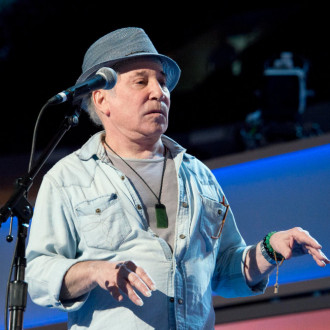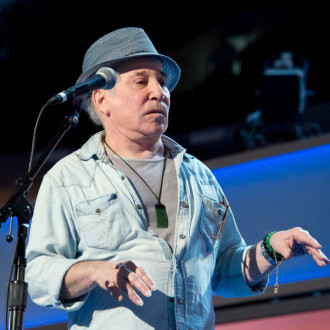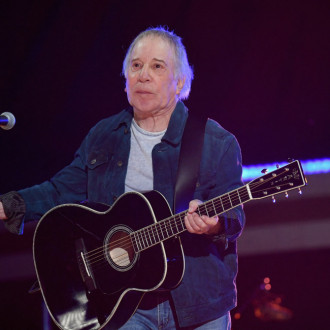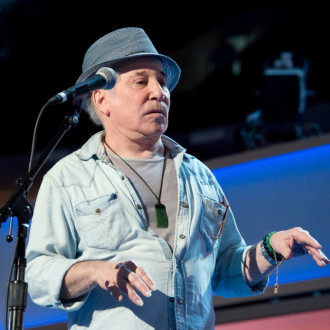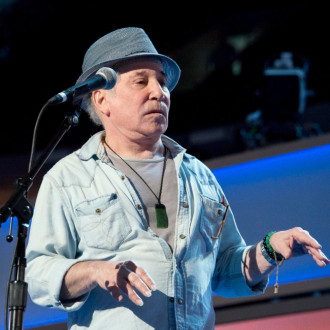Review of Graceland 25th Anniversary Edition Album by Paul Simon
"It was the perfect storm." Whoopi Goldberg's description of Paul Simon's 'Graceland' may be a fondly remembered and heartfelt one but the history of Simon's seminal album was so much more complex than this suggests. There most certainly was a storm, but it was far from perfect, for anyone involved. Like a tornado, 'Graceland' began to gather the debris of political and racial tensions, both in South Africa (under apartheid rule at the time) and in Paul Simon's home of the USA, until eventually, the album was at the eye of the storm.

25 years on, an anniversary edition of Graceland has been compiled and includes Joe Berlinger's 2012 Sundance Film Festival-commended documentary 'Under African Skies,' a moving analysis of the political backdrop that both informed the album and was challenged by the very existence of 'Graceland.' The commentary and debate surrounding the creation of the album has never ceased, though, but with hindsight, Berlinger casts light and clarity over the events surrounding its creation. The South African musicians with whom Simon collaborated are given equal voice in the documentary, immediately undermining the accusations of exploitation that are often levelled at Paul Simon.
Admittedly, 'Graceland' may well have brought South African music to the attention of the white western world in a manner that watered it down, stylistically. What becomes apparent, though, is that the songwriter's motives for going to South Africa was not to pillage the sound or the culture of the country but was borne of a love for the music that he had once discovered on a cassette tape given to him by a friend. He was given the option of using New York musicians to recreate the sound. He rejected the idea outright and wanted instead, to go to the birthplace of this sound and to collaborate with the musicians responsible for its creation.
A testament to the unifying power of music, Joseph Shabalala of Ladysmith Black Mambazo is quick to dismiss any notion of racial hierarchy within those recording sessions. "he's my brother. because of the music," he says to camera in a manner that suggests it would be futile to question him. A thread that runs through the documentary is an uncomfortable - though civil - confrontation between Paul Simon and Dali Tambo of Artists Against Apartheid, filmed for the documentary. Tambo is openly critical of Simon's actions in recording 'Graceland' when he did, with black South African musicians, because of that "inconvenient thing called apartheid." Tambo tells him plainly "it wasn't the ideal form of cultural exchange. they weren't free people." Certainly, the image that Paul Simon found himself portraying, of black South Africa, was problematic in its simplicity. Simon's answers always boil down to one thing; and when he repeats it, the arguments against him all but evaporate: They were artists. Collaborating together. Music knows no hierarchy. "They didn't say 'come here and tell my story," he says. So he didn't.
Aside from the debate and enlightenment of the documentary, the 25th anniversary package also works as an insightful refresh on the classic album. There are several piquant moments, such as the revelation that 'Diamonds on the Soles of Her Shoes' - possibly one of the most iconic tracks on the album - was written because the record label had delayed the release of the album for a few months. Paul had all the musicians in New York for a Saturday Night Live performance (a highlight, in itself, for its awkward tenderness), so they decided to make the best of their time together and crack on with another song. Just one of those moments where circumstance plays into the hands of the artist. Elsewhere, the DVD contains some of the music videos from the album, including the simple, yet hilarious 'You Can Call Me Al,' featuring Chevy Chase. The audio CD features demo versions of several of the album tracks. A particular highlight is 'Homeless,' a softer, fuzzier version than the one destined for wider release.
Of all the negative commentary levelled at Paul Simon, at the time of Graceland's release, the media contained herein leaves you with a feeling that his biggest crime was one of naivety. Not that he wasn't aware of the political situation - though there were certainly holes in the limited awareness that he did have - but he certainly seemed naïve to the impact that he would have and the anger that would be wrought from his actions. It was the blindness that came with that naivety, though, that caused him to stumble through doors that would otherwise have remained closed to him. 'Graceland' is many different albums, depending on the filter through which you listen to it. When viewed as a collaborative effort between two disparate cultures, the politics fade away momentarily and reveal a masterpiece.
Hayley Avron
Official Site - http://www.paulsimon.com
